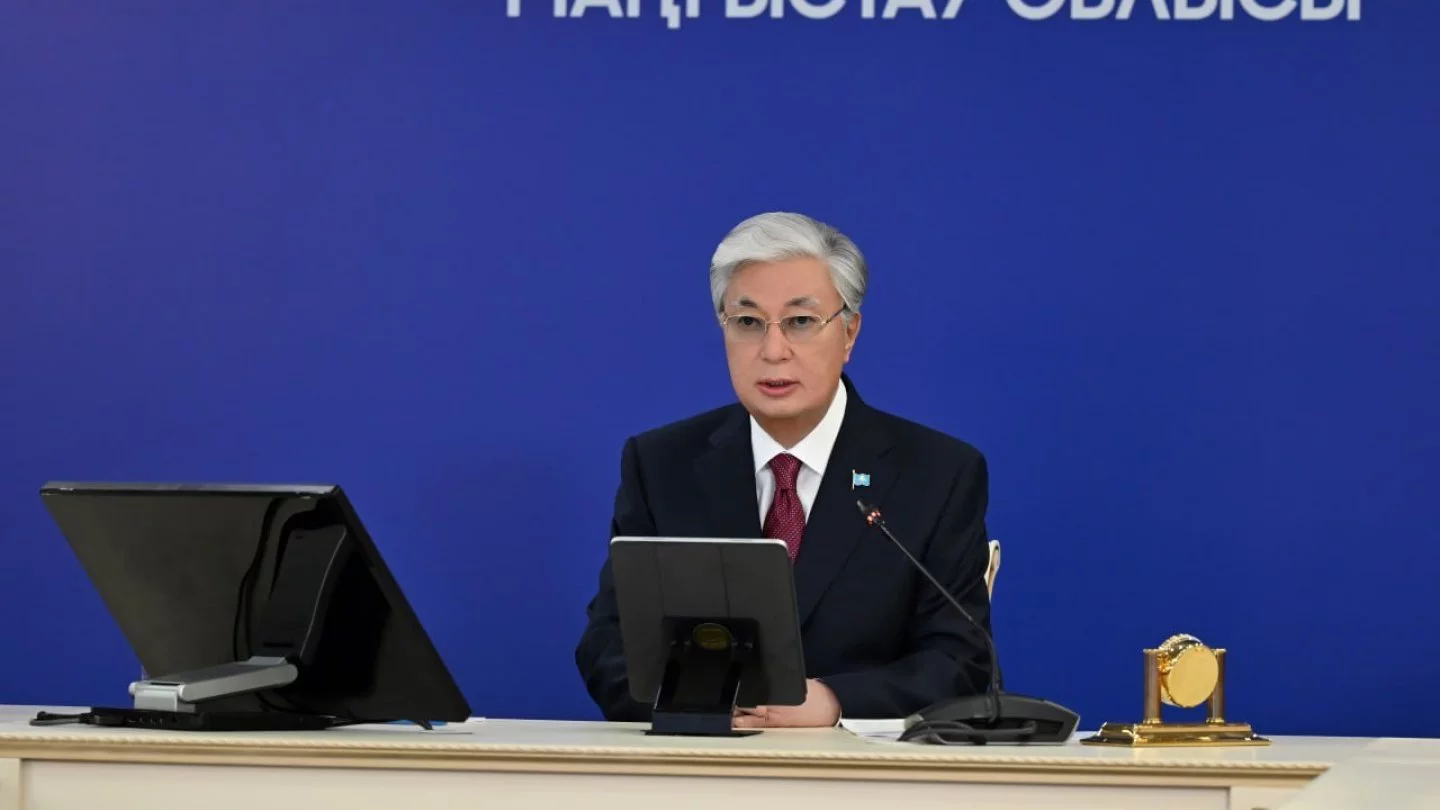Toqayev Criticizes Delays in Janaozen Gas Plant, Calls for Urgent Water Reforms in Mangystau
 Photo: Aqorda
Photo: Aqorda
At a meeting on the development of the Mangystau region, President Qasym-Jomart Toqayev criticized the government for the delayed implementation of the gas processing plant in Janaozen, Orda.kz reports, citing Aqorda.
According to the President, the plant was supposed to be operational by 2024. Due to protracted procedures, the contract with the contractor was only signed last year, and commissioning has now been pushed back to 2027.
The order was to launch the gas processing plant in Janaozen by 2024. However, due to protracted procedures, the contract with the contractor was only signed last year, and the commissioning was postponed to 2027,
Qasym-Jomart Toqayev said.
He called the delay “a major omission on the part of the government” and instructed the Cabinet to take the project under strict control. Earlier, KazMunayGas head Askhat Khasenov announced that 17.3 billion tenge in investments would be attracted for the plant's construction.
Water supply issues also took center stage during the April 18 regional development meeting.
Toqayev highlighted that Mangistau's growing population — driven by both migration and natural increase — continues to affect water resources.
Due to the lack of MAEK desalination capacity, there is an acute shortage of drinking water, especially in the summer. In three cities and 59 rural settlements, despite the presence of a centralized water supply, water is supplied on schedule. The daily deficit is 23 thousand cubic meters.
Qasym-Jomart Toqayev said.
He noted that six desalination plants are under construction in the region, with the facility in Kenderli expected to be completed in May. It will supply water to Janaozen and the surrounding rural districts.
Toqayev also addressed the Astrakhan-Mangyshlaq water pipeline, which has delivered 170,000 cubic meters of water daily since 2023, up from 110,000. However, he emphasized that the water requires deep purification.
He suggested exploring alternative sources, including the Kokzhide groundwater deposit in the Aqtobe region:
Experts note that the Kokzhide groundwater deposit in the Aktobe region can be used as an alternative source of drinking water supply for the region. The project should be comprehensively developed and its economic feasibility assessed. Experts also propose building a water pipeline from the Kokzhide, Aishuakskoye and Severo-Aishuakskoye deposits to settlements in the Mangystau and Atyrau regions.
If built, this 1,400-kilometer pipeline could deliver 170,000 cubic meters of water daily — enough to meet the needs of 1.2 million people. Toqayev also expressed support for drilling wells to assist local farmers.
He commented on the worn-out state of the region's water supply infrastructure:
The regional center has a very high level of wear and tear of water supply networks — 77%, resulting in water losses reaching 16%. In general, the poor condition of the water supply and sewerage network is a serious problem for the entire region. For example, the wear and tear of water pipes in Aqtau is 77%, in Janaozen — 59%. The wear and tear of the sewerage network in Aqtau has reached 76%, in Janaozen — 72%.
To address the issue, the President called for immediate, concrete measures to modernize the water infrastructure across the region.
Original Authors: Nikita Drobny, Igor Ulitin
Latest news
- Kazakhstan Lifts Gallium Export Duty
- Chinese Firm Proposes to Fund New Port and Logistics Hub in Mangystau Region
- ForteBank Stock Soars on Home Credit Deal, Then Plunges 30% in a Day
- Coins Believed to Be Tied to Kairat Satybaldyulyuly to Be Auctioned
- Ukraine’s Military Intelligence Chief Says Ceasefire Should Come Before Year’s End
- Kyrgyz Citizen Fined in Kazakhstan for Carrying Banned Book Across Border
- Trial of Former Financial Police Officers in Khorgos Case No. 1 Closed to Public Over State Secrets
- Kazakhstan to Ban Outdoor Currency Rate Displays at Exchange Offices Starting September
- Armenian Court Orders One-Month Detention for Tashir Pizza Executive Amid Ongoing Investigation
- Kazakhstan May Require Banks to Offer Deferrals to Socially Vulnerable Borrowers
- Almaty Utility Pursues Debt Collection for Unpaid Heating and Hot Water Bills
- Kazakhstan and Afghanistan Sign Railway Memorandum
- Kazakhstan's National Bank Keeps Interest Rate at 16.5%, No Cuts Expected Until 2026
- Vyacheslav Kim Finalizes Purchase of Alatau City Bank
- Wild Arman Associate Detained in UAE Over Alleged Role in Qantar Riots
- Ulytau Region Akim Sues Woman for 495,000 Tenge Over TikTok Video
- Ukrainian Entrepreneurs Move to Buy BTA Bank from Kazakh Businessman Kenes Rakishev
- Kazakhstan’s Foreign Debt Hits 170.5 Billion USD in Q1 2025
- Regulator Flags Pricing Issues in Yandex Go Audit, Company Ordered to Adjust Policies
- Azattyq Prepares Lawsuit Against Kazakh Foreign Ministry Over Denied Press Accreditations

